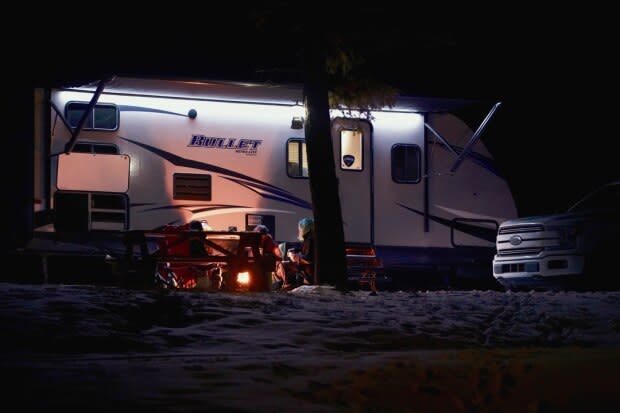Kootenay region pitched as winter roost for Canadian snowbirds
The Columbia Valley region of British Columbia can't claim the warm winter temperatures of Palm Springs or Phoenix.
But regional officials are hoping the area's other charms will be enough to attract Canadian snowbirds whose annual migrations to a warmer climate are on hold because of the continuing COVID-19 pandemic.
"It's a great place for Canadians, and hopefully snowbirds to spend two, six, eight weeks or more," Ryan Watmough, the economic development officer for Columbia Valley, told CBC Daybreak South host Chris Walker.
The plan to promote the region to sun-loving retirees is also envisioned as a strategy to help local businesses survive the pandemic, Watmough said.

In mid-March, Canadian snowbirds flocked back early from their winter sojourns in the U.S. and other warm destinations as the first wave of COVID-19 spread around the world.
In the latest newsletter from the Canadian Snowbird Association's official publication, the CSA News, association President Karen Huestis expressed optimism that the annual migration will be back in full swing by fall.
"It is our belief that our border with the United States will open again to leisure travel toward the end of the summer," Huestis wrote.
"For those travelling, the key to staying safe in our winter homes shouldn't be that different from the protocols which we observe here in Canada: maintaining a two-metre distance from those whom we don't live with; wearing face coverings; avoiding touching your face, frequent hand washing; and disinfecting high-touch surfaces," she wrote.

Watmough said he doesn't believe most Canadian retirees will be eager to return to U.S. sun belt destinations any time soon as high levels of COVID-19 infections and deaths continue.
"They're not going to likely want to go down to Florida, Arizona, Texas or California this winter. Perhaps not going to be able to," he said. "So it's a matter of let's show them what they can do, and what they can discover in Canada."
Watmough expects some of the snowbirds who will spend winter in the Columbia Valley are local residents who will opt to stay home this year. In addition local families who may invite retired parents and grandparents who may fill hotel rooms, longer-term rentals or perhaps bring their RVs for winter camping.
Watmough estimated that if even 500 to 750 of the estimated 300,000 Canadian snowbirds spend a good part of the winter in the Columbia Valley, it would make a major difference in bringing the local economy through the pandemic.

